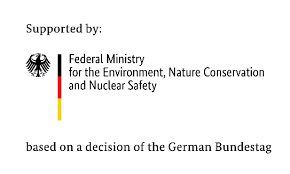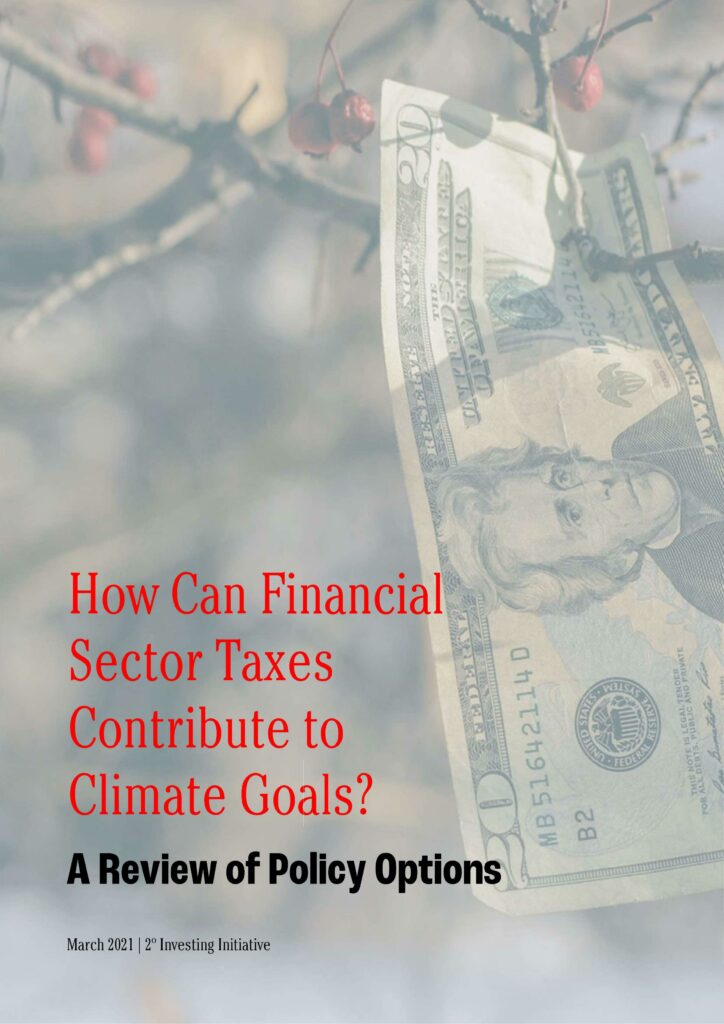In parallel, climate-related taxes are on the rise. So far, however, there has been little focus on ways to use financial sector tax instruments to support climate goals. Financial sector taxes are largely ignored in reports of expert groups and policy initiatives. In order to fill this gap, this report examines financial sector taxes through the lens of environmental policy.
Three main policy options for “greening” financial sector taxes
The authors, Jakob Thomae and Anne Schoenauer from 2DII’s Long-term Risk Management Research Program, examine three ways to better reconcile financial sector taxes with climate goals:
-
The implementation of a tax incentive on green saving schemes
This includes two potential routes for green policy intervention: 1) introducing sustainability-related eligibility requirements in order for financial products to continue benefiting from existing tax incentives (or removing tax incentives for non-sustainable products); or 2) introducing more generous tax incentives relative to current baselines based on financial products’ sustainability performance. We examine the first option with a case study on Individual Savings Accounts (ISAs) in the UK, which will be explored in-depth in an upcoming 2DII report.
-
Adjusting bank levies on green / high-carbon assets
The report finds that bank levies offer two potential areas for green policy intervention: 1) increasing the bank levy on high-carbon assets or as a function of portfolio-level limits related to high-carbon assets; or 2) reducing the bank levy on low-carbon assets or as a function of portfolio-level exposures related to low-carbon assets. We explore both approaches with a case study from the Netherlands, one of only two countries reviewed for this report that integrate specific policy objectives (specifically long-term lending) in designing these types of levies.
-
Introducing a financial transaction tax (FTT) on high-carbon assets, or exempting green assets from an FTT
The report finds scope for green policy intervention in two areas: 1) tax incentives for energy-efficient, low-carbon or “green” buildings in the real estate sector; and 2) exemptions for green assets in the context of FTTs. The authors highlight case studies in Spain and Germany, where tax incentives could be deployed to reward “green” actions like retrofitting or to deter the construction of low-efficiency buildings.
Coming up: “The hidden fossil fuel subsidy” – how tax incentives on savings and pensions are secretly subsidizing fossil fuel investments
Tax incentives on savings and pension products can represent a significant fossil fuel subsidy when they’re invested in oil & gas and other companies. In an upcoming report, 2DII calculates the tax incentives on savings and pensions that effectively create a fossil fuel subsidy in the UK, and how the system could be reformed.
About our funders: The program is part of the International Climate Initiative (IKI). The Federal Ministry for the Environment, Nature Conservation and Nuclear Safety (BMU) supports this initiative on the basis of a decision adopted by the German Bundestag. This project has received funding from the European Union’s Life NGO program under Grant Numbers LIFE20 NGO/SGA/DE/200040 and LIFE19/NGO/SGA/DE/100040. The paper reflects only the author’s view and that the Agency and the Commission are not responsible for any use that may be made of the information it contains.




